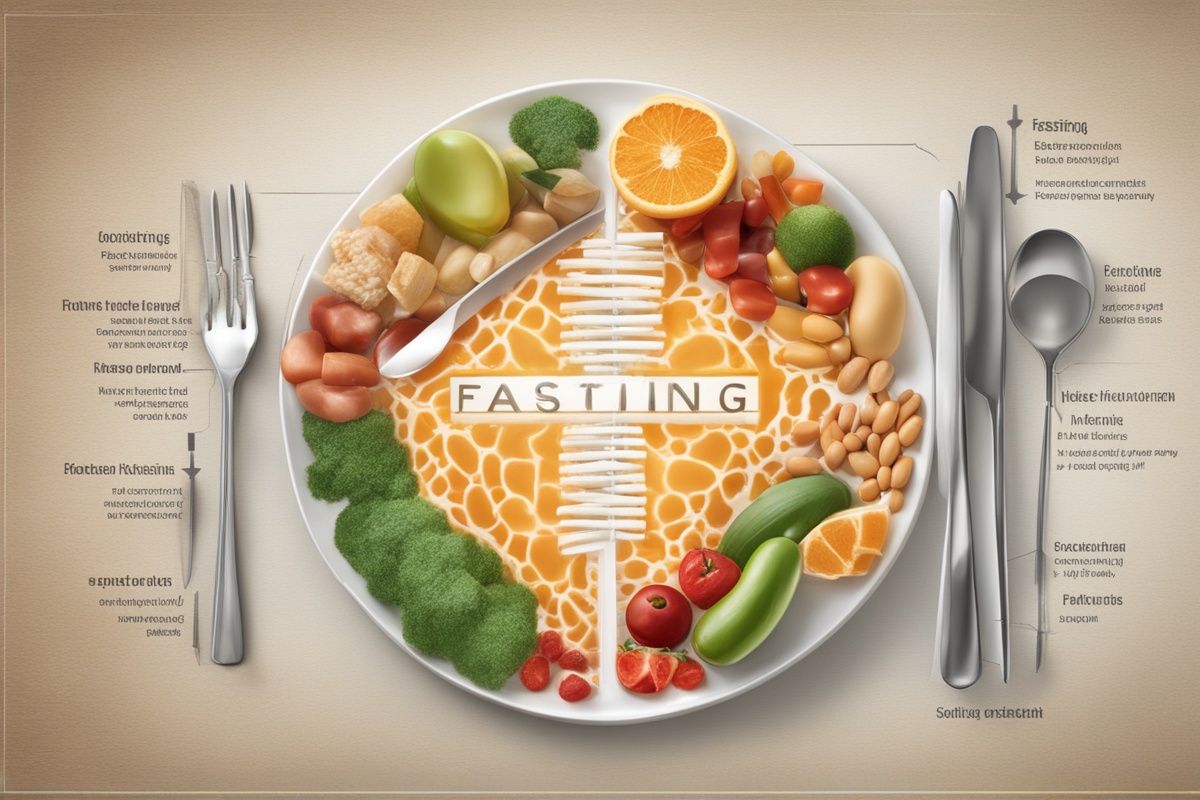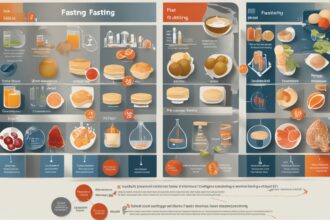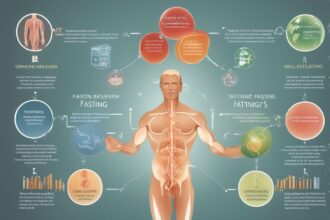Have you ever wondered why some people seem to thrive on health fasting while others struggle to see results or even feel worse? The answer might lie in your DNA. Fasting, a practice rooted in ancient traditions and now backed by modern science, isn’t a one-size-fits-all solution. Your genetic makeup plays a significant role in how your body responds to fasting protocols, whether it’s intermittent fasting, water fasting, or extended fasts. In this deep dive, we’ll explore the fascinating intersection of fasting and genetics, uncovering how your genes influence metabolism, hunger signals, and overall wellness during fasting. Stick with me as we unpack the science, share practical tips, and help you tailor a fasting approach that aligns with your unique biology for optimal fasting health benefits.
What Is Health Fasting, and Why Does It Matter?
Let’s start with the basics. Health fasting refers to intentionally abstaining from food for specific periods to promote physical and mental well-being. Popular methods include intermittent fasting (like the 16:8 method, where you fast for 16 hours and eat during an 8-hour window), alternate-day fasting, and prolonged fasts lasting 24 hours or more. Research shows that fasting can improve metabolic health, reduce inflammation, and even support longevity (Mattson et al., 2017). But here’s the catch: not everyone experiences the same fasting wellness outcomes. Genetic variations influence how your body handles nutrient deprivation, fat burning, and stress responses during fasting. Understanding these differences can help you maximize the perks of fasting while minimizing potential downsides like fatigue or irritability.
How Genetics Shape Your Fasting Response
Your genes are like a blueprint for how your body operates, and they play a starring role in your fasting journey. Specific genetic markers affect key processes like metabolism, insulin sensitivity, and even how hungry you feel. For instance, variations in the FTO gene—often called the “fat mass and obesity-associated” gene—can impact how efficiently your body switches to burning fat for fuel during fasting (Frayling et al., 2007). People with certain FTO variants may find it harder to enter ketosis, a fat-burning state that many aim for with healthy fasting practices. Meanwhile, genes like MC4R influence appetite regulation, meaning some individuals might feel ravenous during fasting while others barely notice hunger. These genetic quirks explain why two friends on the same fasting plan can have wildly different experiences.
Key Genetic Factors in Health Fasting Success
Let’s break down a few genetic factors that directly tie into health fasting outcomes. Knowing where you stand with these can guide you toward a fasting style that works with your biology rather than against it.
- Metabolic Genes: Genes like PPARG and AMPK regulate how your body processes energy. Variants in these can determine whether you’re a fast fat-burner or if your body clings to glucose, slowing down fasting benefits (Kersten, 2014).
- Insulin Sensitivity: Genetic variations in TCF7L2 affect insulin response, which impacts how well fasting lowers blood sugar levels for you (Grant et al., 2006).
- Stress Response Genes: Fasting is a stressor on the body, and genes like NR3C1, tied to cortisol production, influence how you handle that stress. Some people may feel energized, while others feel drained (De Kloet et al., 2005).
- Autophagy Markers: fasting triggers autophagy, a cellular cleanup process linked to anti-aging. Genes like mTOR and SIRT1 play a role, and variations can affect how much you gain from this process (Madeo et al., 2019).
Can Genetic Testing Help Optimize Fasting Wellness?
With the rise of at-home genetic testing kits, you might be curious if a simple cheek swab can unlock the secrets to better fasting health benefits. The short answer? It can help, but it’s not a magic bullet. Companies like 23andMe or AncestryDNA provide raw data on certain genetic markers related to metabolism and appetite. More specialized tests from firms like Nutrigenomix can offer insights tailored to nutrition and fasting. For example, they might reveal if you have a variant that makes prolonged fasting less effective or if you’re prone to low energy during calorie restriction. However, genetic testing is just one piece of the puzzle. Lifestyle, diet, and stress levels also matter. If you’re considering a test, consult a healthcare provider or genetic counselor to interpret results accurately and apply them to your healthy fasting practices.
Practical Tips to Align Fasting with Your Genetic Profile
While not everyone has access to genetic testing, you can still personalize your health fasting approach by listening to your body and experimenting wisely. Here are some actionable strategies to align fasting with your unique needs, whether you’ve got DNA data or not.
- Start Slow and Observe: If you’re new to fasting, begin with a gentle 12:12 schedule (12 hours fasting, 12 hours eating). Pay attention to how you feel—extreme hunger or fatigue might hint at genetic predispositions to struggle with longer fasts.
- Adjust Fasting Windows: If you suspect slower fat metabolism (common with certain FTO variants), try shorter fasting windows like 14:10 to ease your body into ketosis without stress.
- Focus on Nutrient Timing: Break your fast with balanced meals rich in protein and healthy fats to support insulin sensitivity, especially if your family history suggests diabetes risk tied to genes like TCF7L2.
- Manage Stress: If fasting leaves you anxious or irritable, prioritize relaxation techniques like meditation. This can offset genetic stress responses and enhance fasting wellness.
- Track and Tweak: Use a journal to log energy, mood, and hunger during different fasting protocols. Patterns can reveal what works best for your body’s genetic wiring.
The Future of Fasting and Genetics Research
The science of fasting and genetics is still evolving, and it’s an exciting space to watch. Researchers are digging deeper into how specific gene expressions change during fasting, a field called epigenetics. Early studies suggest that fasting can “turn on” protective genes tied to longevity and disease prevention, even if your baseline DNA isn’t ideal (Madeo et al., 2019). Personalized nutrition based on genetic profiles is also gaining traction, with potential to revolutionize how we approach healthy fasting practices. Imagine a future where your doctor prescribes a fasting plan as precise as a medication dose, tailored to your DNA. While we’re not quite there yet, staying informed about these advancements can help you adapt your fasting routine as new findings emerge.
In wrapping up, it’s clear that health fasting isn’t just about willpower or following the latest trend—it’s deeply personal. Your genetics shape how your body responds to fasting, from fat burning to hunger cues to stress management. While tools like genetic testing can offer valuable clues, you don’t need a lab report to start optimizing your fasting wellness. By experimenting thoughtfully, tracking your body’s signals, and making small adjustments, you can craft a fasting practice that works with your unique biology. Remember, the goal of fasting health benefits isn’t perfection but progress. So, take it one fast at a time, stay curious, and let your body guide the way to better health.
References
- De Kloet, E. R., Joëls, M., & Holsboer, F. (2005). Stress and the brain: From adaptation to disease. Nature Reviews Neuroscience, 6(6), 463–475. https://doi.org/10.1038/nrn1683
- Frayling, T. M., Timpson, N. J., Weedon, M. N., et al. (2007). A common variant in the FTO gene is associated with body mass index and predisposes to childhood and adult obesity. Science, 316(5826), 889–894. https://doi.org/10.1126/science.1141634
- Grant, S. F., Thorleifsson, G., Reynisdottir, I., et al. (2006). Variant of transcription factor 7-like 2 (TCF7L2) gene confers risk of type 2 diabetes. Nature Genetics, 38(3), 320–323. https://doi.org/10.1038/ng1732
- Kersten, S. (2014). Integrated physiology and systems biology of PPARα. Molecular Metabolism, 3(4), 354–371. https://doi.org/10.1016/j.molmet.2014.02.002
- Madeo, F., Carmona-Gutierrez, D., Hofer, S. J., & Kroemer, G. (2019). Caloric restriction mimetics against age-associated disease: Targets, mechanisms, and therapeutic potential. Cell Metabolism, 29(3), 592–610. https://doi.org/10.1016/j.cmet.2019.01.018
- Mattson, M. P., Longo, V. D., & Harvie, M. (2017). Impact of intermittent fasting on health and disease processes. Ageing Research Reviews, 39, 46–58. https://doi.org/10.1016/j.arr.2016.10.005






